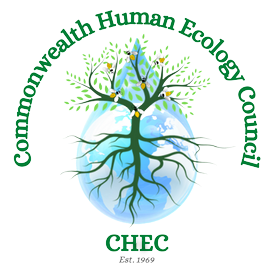On the Anthropocene and Reconfiguring Nature
In mid-October several major newspapers reported upon a meeting of geologists and climate scientists in Berlin to discuss the definition of a new geological epoch, the Anthropocene. In this modern epoch, that began with industrial revolution in Europe roughly 250 years ago, the impact of human life upon the planet is deemed to have radically altered the planet’s climate and ecosystems. Humans have had such a pervasive impact on the planet’s climate and ecosystems that the climate, the oceans and the world’s biodiversity, are irrevocably changed. This human dominance distinguishes the Anthropocene from the Holocene, the 11,700 year-long post-glacial epoch in which we currently live, characterised by the warmer and wetter weather that has allowed human populations to expand exponentially. Growing numbers of social and natural scientists find the Anthropocene to be a concept that perfectly reconfigures the terms of debate around climate change and biodiversity loss.“Our notion ofnature is now out of date”, says the Anthropocene Project, who have helped convene the Anthropocene Working Group in Berlin. “Humanity forms nature”, they argue, and so what the international community needs is a term that encompasses this transformative feedback loop of human-ecological relations. For human ecologists, the idea that “humanity forms nature” has always been the part of the human-society interface that decision-makers have too often failed to acknowledge and incorporate.By contrast, in Doug Herman’s recent think-piece for the Smithsonian Institution, the problem is not that modern notions of “nature” are out of date. Rather the opposite, modern notions of nature reduced it to a “mindless meaningless materialist universe” (Herman quoting Val Plumwood, 2009). In the years following industrialisation, nature became a resource; raw material.Radically, Herman asks us to follow him down an alternative route, not towards adopting the Anthropocene concept as a global macro-material infrastructure, but towards a consideration of indigenous knowledges, nonmodern cultures that have a strong sense of human-ecological interconnectedness. For Herman, the notion of “indigeneity” is “a way of being in the world: being indigenous to a place means having a depth of knowledge”. It calls upon those of us who inhabit the world’s cities to develop a greater awareness of our own complex ecologies. “Indigineity” in Herman’s use is human-ecology; it is an attempt to refer to people who have lived in less destructive relations with their environments.If nature is “fighting back”, and actions in one place impact societies elsewhere (rising sea levels, increased frequency of major hurricanes), then Herman calls for modern Western countries to regain the “sane respect for the powers of nature” anthropologists have long studied in small scale hunter-gatherer communities.Rather than reinventing global epochs, Herman directs us towards the concerns of human ecologists when they are at their most anthropological. Human ecology surely says that the Anthropocene concept suggests that we need to mitigate and adapt in a million ways to reduce individual consumption and to share the world’s resources more equitably. If we are to beat climate change and the loss of global biodiversity we must shift our own rationalist paradigms, and to do so, might we draw upon the values of nonmodern peoples within a broader consideration of human ecology?
